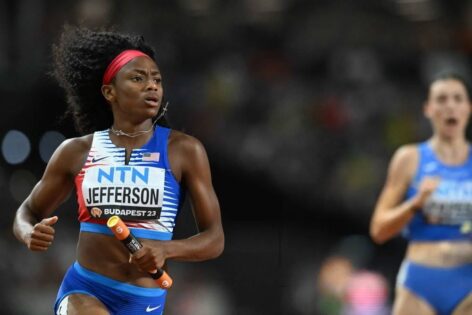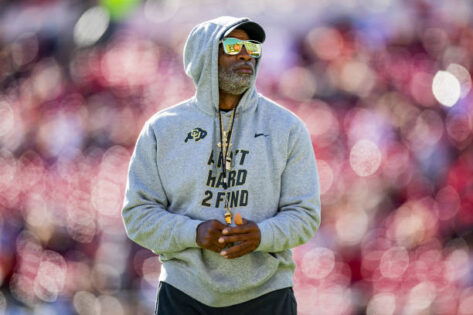“I’ve been saying it all along, I want to always be remembered as one of the best in this sport.” Those were Melissa Jefferson-Wooden’s words, glowing with defiance and destiny, moments after she lit up the track in Philadelphia at Grand Slam Track. With each thunderous stride in the 200m final, Jefferson-Wooden not only crushed her personal best with a 21.99 but also delivered a statement win over Olympic champion Gabby Thomas. Just weeks after falling short against her in Miami. From a surprise double-gold performance in Kingston to this emphatic comeback in Philly, she’s pocketed $100,000. And reminded the world that she’s the one leading the charge.
But it’s not just about her. Jefferson-Wooden knows that Grand Slam Track is doing something bigger. What makes this competition so amazing is that it brings out the best in everybody, from stars like Gabby Thomas and Sydney McLaughlin-Levrone to names you’ve never heard of until now. The first three Slams have turned into gold mines for rising stars. Dylan Beard, balancing a job at Walmart, has already won $65,000, and Jacory Patterson, who works at UPS, made $50,000 for a single second-place finish. For Jefferson-Wooden, these stories aren’t just inspiring. They’re the heart of why this platform matters.
Jefferson-Wooden believes that GST’s power to change lives, not just reward the already established, is what makes the competition standout. She’s been moved by the raw, unfiltered grit of her fellow athletes, the kind of stories that rarely make headlines but deserve to. “It’s beautiful. I heard about the incident in Miami where one of the 400-metre guys worked at four in the morning loading trucks,” she shared, the admiration clear in her voice. It wasn’t just a casual mention. It was a reminder of what this sport demands when fame and fortune aren’t guaranteed. “But then he still found a way to go out there and make teams and practice.” That kind of resilience, she believes, is exactly why Grand Slam Track matters. It offers an equalizing chance.
To her, this isn’t just a competition. It’s a movement. “Grand Slam has given him an opportunity to focus on training rather than waking up to load trucks and losing sleep,” she said. Coming from someone who didn’t have a pipeline to fame either, the words hit differently. Melissa Jefferson-Wooden didn’t rise through the NCAA powerhouses in Texas or Tennessee. She stayed close to her Georgetown, South Carolina roots, and carved her own path through a small local college. Now, standing among global sprinting stars, she knows what it means to fight for a lane. “You should never be labelled a professional in a sport and not be able to provide for yourself financially,” she added, echoing the hopes of dozens of athletes for whom GST has become a lifeline, not just a platform.
And if her words carried power, her performance in Philadelphia roared. Jefferson-Wooden returned not just faster, but unstoppable. Just a day before her 21.99 breakthrough in the 200m, she scorched the track in 10.73 seconds in the women’s 100m. A new personal best, the world lead, and the fifth-fastest time ever by an American woman. Only nine women in history have run faster. With every meet, she’s stepping further into rare air, inching closer to sprint icons like Sha’Carri Richardson and Julien Alfred.
From missed teams to medal dreams: How Melissa Jefferson-Wooden’s gamble paid off
The post Undefeated in Grand Slam Track, Melissa Jefferson Highlights UPS Worker’s Strength to Show What It Truly Means to Be a Pro Athlete appeared first on EssentiallySports.



